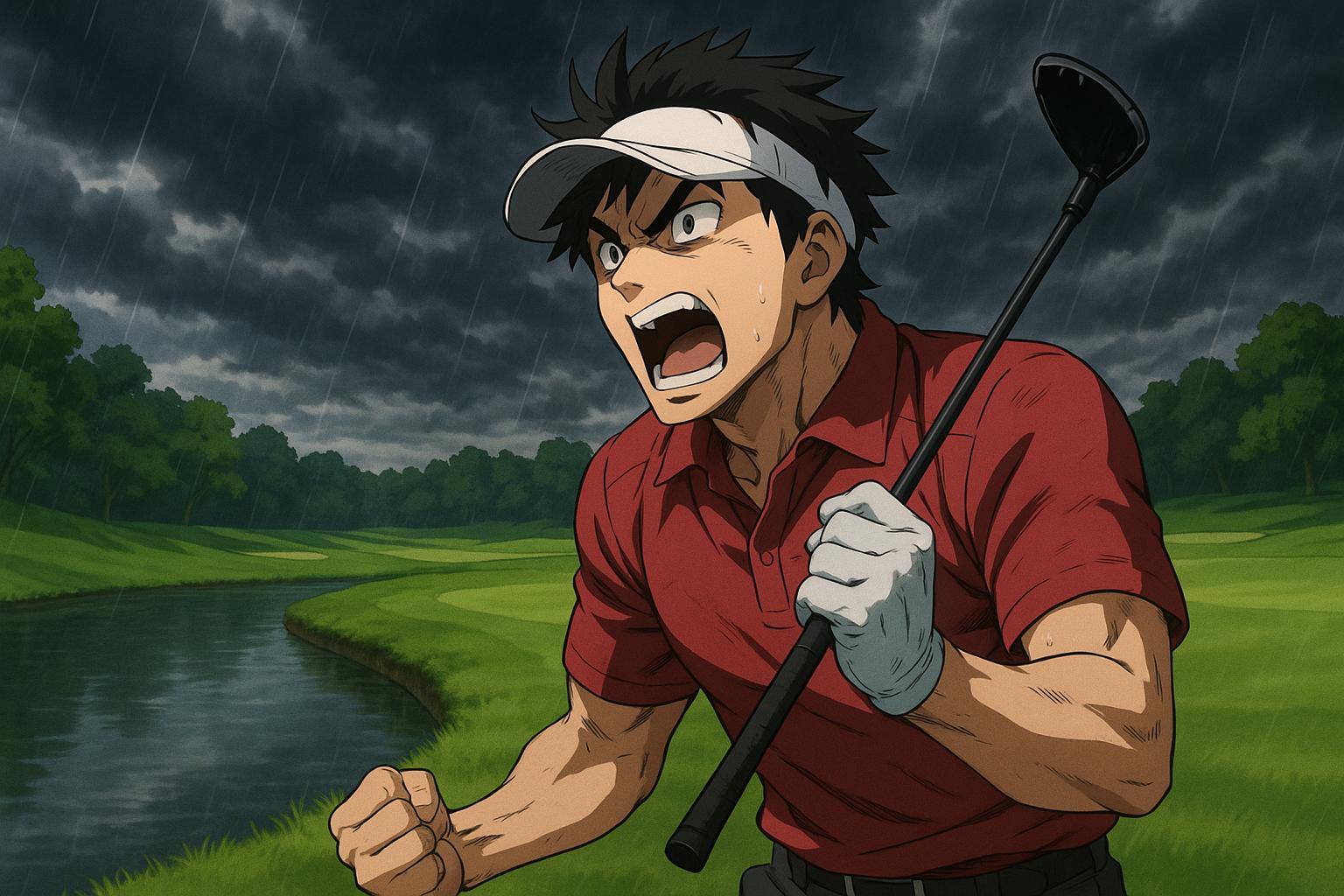Tyrrell Hatton's recent outing at the US PGA Championship was marked by a dramatic display of emotion, underscoring his volatile relationship with pressure on the golf course. While he began the day with a promising start, posting a score of five under par going into the 18th hole, his march towards potential contention was interrupted by a catastrophic meltdown that left fans and commentators astonished.
Hatton's journey took a turn at the 18th, where a misplayed drive sent his ball into a creek, triggering an explosive outburst that reverberated across the course. Known for his candid nature, Hatton vocally expressed his frustration, declaring his driver to be “a piece of s***.” This anger proved counterproductive, leading to a triple bogey seven that effectively dashed his chances of a strong finish. After signing off with a 73, leaving him at one under for the tournament and seven shots behind the leader, Jhonattan Vegas, Hatton reflected on his temperamental display, admitting, “I was running hot in the moment. I’m pretty good at sometimes saying the wrong thing.”
The incident has reignited discussions about Hatton's temperament and whether his emotional candour enhances or detracts from the sport. While some argue that such fiery displays are unbecoming of a professional athlete, others see value in the authenticity and entertainment it brings to a game often perceived as overly staid. Reactions from previous tournaments have supported this divide. After an outburst at the AT&T Byron Nelson, where he flipped a gesture towards a sand trap, many fans voiced that these moments add excitement and character to the competition.
Yet, Hatton's volatile behaviour has drawn scrutiny, with notable incidents punctuating his career. Critics have accused him of disgraceful conduct, particularly during competitions where pressure is intense. The debate is complicated further by the mental challenges that golfers face; even when performing well, as seen when he finished strongly at the Wells Fargo Championship, Hatton has acknowledged the constant emotional rollercoaster inherent in professional golf.
In the wake of his latest antics, Hatton has attempted to self-correct. After experiencing backlash for his on-course behaviour, he famously wrote “be nice :)” on his glove, a reminder to maintain composure in the face of adversity. This gesture highlights a recognition of the expectations placed upon players and the pressures that can lead to public displays of frustration.
The landscape of professional golf is increasingly shaped by emotional expression, with players like Hatton walking a fine line between authenticity and decorum. His performance at the PGA Championship, juxtaposed with the contrasting calmness of leaders like Vegas and others, emphasises the diverse array of responses to high-pressure situations in the sport.
As Hatton looks ahead to the weekend, he acknowledges that improvement is critical. “If you take out those dropped shots you're in a nice position going into the weekend,” he noted. “Now I need to have two very good rounds without putting a foot wrong.” With a track record of strong performances at Quail Hollow, there remains hope that he can channel his passion into productive play and reclaim his standing among the world's elite.
As the tournament continues to unfold, all eyes will be on Hatton—not just for his score, but for the emotional journey that defines his competitive spirit and the broader narrative of golf in an era of heightened visibility and fan engagement.
Reference Map
- Paragraph 1: [1]
- Paragraph 2: [1]
- Paragraph 3: [2], [3]
- Paragraph 4: [4], [6]
- Paragraph 5: [5], [6]
- Paragraph 6: [1], [7]
- Paragraph 7: [1]
Source: Noah Wire Services
